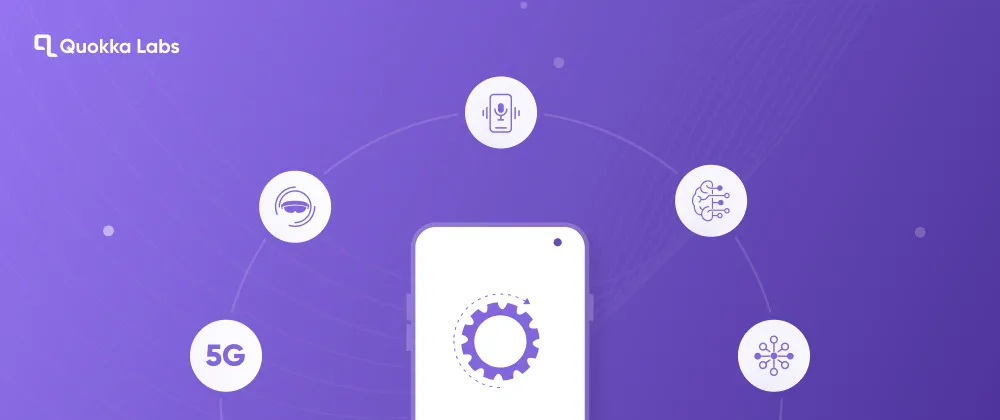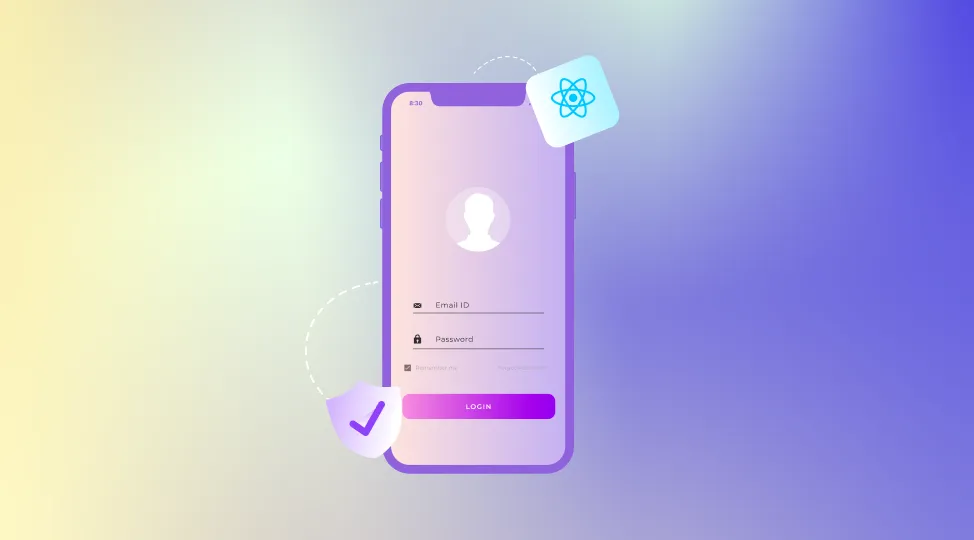Technology

6 min

The statistics state that there are 6.3 billion users, so it’s cleaner that mobile application development is the leading industry in this digital age. Therefore the time started after Covid-19 to sustain our business in this competitive market. So, being Quokka Labs- a leading mobile application development company, it’s our responsibility to let our users understand actual mobile app development trends in 2024.

By Mayank Ranjan
09 Dec, 2022
The mobile app development industry is evolving at a fast rate. So, you should know the changing mobile app development trends in this digital era. Smartphones are the key to digital market success. By 2024, the mobile application market value is expected to reach $700 billion.
We know that mobile apps fail sometimes. The inability to implement and track the latest mobile app technology trends is the primary reason for this failure. This shortcoming also brings in needing to gain out on a technologically adaptable competitor. Working and implementing a few mobile app development tips & tricks can improve your app significantly. To make your mobile application a triumph, the first step forward is to stay updated with the latest trends.
_While many new trends in mobile app development are continuously arising this year, here are the top 15 trends we picked after elaboration and research.
Let's see the top 15 mobile app development trends expected in 2024.
1 Rise of 5G
2 AR & VR
3 Wearable App Integration
4. AI & ML
5. Mobile Gaming & Entertainment Apps
6. Apps For Foldable Devices
7. Digital App Security
8. Food & Grocery Delivery Apps
9. Super Apps
10. P2P Mobile Apps
11. Blockchain
12. Predictive Analytics
13. IoT-Enabled Mobile Apps
14. Mobile Commerce
15. Mobile Learning
Now, let's discuss the trends mentioned above in detail.
The 5G technology has been around for a while. But this year, it has turned into a buzzword. Various tech companies have begun consolidating 5G at full scale, and we see 5G-enabled gadgets in the market. By next year, it is expected that 660Mn smartphones will have 5G connection which accounts for around 50% of all devices.
5G will meaningfully alter how we build and use applications. The following are a couple of things we can anticipate:_
The 5G innovation will generally make applications quicker, smoother, and more productive. It will likewise open spaces for development. Every one of the great thoughts you could have about your application will never again remain thoughts. With 5G, you can make them a reality.
Nowadays, we can find numerous scenarios in which brands use AR & VR to enhance user experience. The success of Pokemon Go types of games was temporary, but it paved the way for AR in mobile app development. It showed the world that we could utilize AR/VR to offer an immersive experience to users.
Virtual makeup app allows users to see how the makeup looks on their faces.
Virtually try glasses before buying them.
AR/VR lets users see how furniture will look in their home before buying it.
Even Apple, Google, and Meta are bringing innovations in AR & VR.
Google introduced a Live View feature in Google Maps, where users can see the direction in real-time on real-world imagery.
LiDAR is another significant technological advancement we have recently seen in AR. With LiDAR, capturing superior-quality photos in low light has become possible.
Apple has even revolutionized the furniture shopping process by collaborating with Ikea to launch a new Studio Mode feature that uses LiDAR technology.
We'll also see a spike in AR & VR users this year. It means you have an extraordinary opportunity to leverage these mobile app development trends to bring game-changing experiences to users on mobile.
This year, we will see AR & VR shaping the mobile industry in ways we can't even imagine. The mobile app trend will go more mainstream. According to Statista, the worldwide AR and VR technology market will rise from $27 billion in 2018 to about $220 billion in 2023.
Wearable gadgets are now controlling the world. As per Statista, associated wearable gadgets came to 453 million in 2017 and will reach 950 million by 2024. This year we saw numerous significant things occurring in the wearable gadgets industry. The rise in wearable technology —is one of the important mobile app development trends in 2024.
Apple launches its WatchOS 8 update It brought new features, fresh watch faces, increased wallet access, and a new interface for Apple Watch users. Even Google announced a unified wearables platform that mixes its wear working system with Samsung's Tizen software platform. This boosted app startup times by 30%.
Developers and businesses should prepare apps that provide an excellent a digital experience to wearable users, hence acquiring a transparent edge over those who do not.
Various astonishing things occurred in AI last year. We saw Google launching new features to its Maps application that utilizes AI to improve client experience. One such element is Live view which offers clients AR routes in enormous indoor spaces. Google likewise uses AI to recommend less carbon-intensive ways by streamlining headings for lower fuel utilization.
AI carried something that moved assumptions to a new level. The MyHeritageApp brought robust photograph animation features that convert pictures into animation. These activities are noteworthy because you feel adored. It got a few legendary responses.
Machine Learning is another exciting field in which we're waiting to see revolutionary things happening. When deep learning joins ML, it can do wonders for versatile mobile app development projects by providing valuable data and real-time analytics. Apple has been one of the vital participants in ML. Its canny ML models have permitted developers to make vivid new encounters. Besides the fact that you effectively add can prior highlights, you can likewise create new ones. Also, you can add recent highlights with ML APIs.
This year, we propose you get further into these innovations and get to know their highlights appropriately and a significant number of their parts. AI and ML development have been among the top mobile app development trends for the last few years, But these innovative headways set the high bar for mobile app development for 2024, and it will be interesting to see what it brings to the table this year.
Read More: How AI & ML Can Transform The Mobile App Development Industry?
Gaming and Entertainment applications have become part and parcel of everyone's life. Specific individuals couldn't envision going through a single day without them. We can determine the prominence of mobile entertainment applications as Netflix has around 70% dynamic endorsers in the US and Canada. Besides this, over 160 million cell phone gamers and mobile devices are number one among gamers - up to more than 89% of US digital gamers.
Mobile entertainment & gaming apps provide an extraordinary break. Especially during the pandemic, people spent time on games and entertainment apps to distract themselves.
They have provided simple access to entertainment. Individuals never again need to buy expensive gadgets or laptops. Instead, they can enjoy and play them on mobile.
Users can always choose between one spot to watch a film or play a game. Instead, they can entertain themselves in a hurry.
Innovative headways like AR/VR and AI have made games & entertainment apps more vivid.
Although foldable devices are the tip of the overall smartphone market share, things will change in the coming years. According to Statista, 50+ million units will get shipped in 2022. Thus it is time to keep foldable devices in mind before developing a strategy. Make sure your apps run smoothly on foldable devices.
Live streaming and gaming applications can reap significant benefits from foldable gadgets by expanding their screen size or utilizing the extra space to offer additional information and controls. Unfolding the device to give a larger screen can have a positive impact on users:
Thus, developing applications keeping the screen in mind will be one of the biggest mobile app development trends in 2024.
According to the Check Point State of Mobile Security 2021 report, around 46% of companies had a minimum of one employee who downloaded a malicious mobile application. Given how much employees rely on mobile devices, it's a worry for organizations. Because of this, most businesses are looking to invest more in cybersecurity, which is directly linked to data protection and information privacy laws. Thus, digital security has emerged as a top mobile app development trend in 2024.
The finest minds are leveling up the stakes to draw out the uncertainty around mobile apps. In WWDC 2021, Apple took the first step to a password-less future by introducing a new feature called Passkeys in iCloud Chain. With it, Apple will replace passwords with a more secure and safe login process. In 2024, the mobile app development industry is expected to shift toward the security-first approach.
Individuals began depending vigorously on applications like Swiggy, Foodpanda & Zomato as they remained at home following the lockdown. Subsequently, these were the quickest-developing application classifications in 2020-21. There was a 40% ascent in essential food item application customers in 2020. Many people favored shopping for essential foods online instead of visiting actual stores. Nonetheless, as may be obvious, both applications saw a decrease in their notoriety in 2021. While staple applications saw an ascent of 5.8%, food conveyance application clients declined by 2.6%.
We might see a slight decrease in their development as we return to everyday life after covid. Food and grocery applications will, in any case, be an essential piece of our lives. Individuals will constantly order food on the web, and grocery applications will, in any case, represent 15.5% of cell phone clients. In any case, the reality of the situation will surface at some point. It will be fascinating to see what street food and delivery applications take in 2022.
Read More: Definitive Guide To Build Food Ordering App – Quokka Labs
A single app, single purpose – it has been the methodology of mobile app development companies for long years. But now, the approach is changing. Companies are moving from single-purpose apps to one-stop solutions that tackle multiple purposes. Such apps are called Super Apps and are well-known in Asia. However, the trend is catching up in other regions, also.
One fascinating model with regards to the US market is Natural AI, created by California-based company Brain Technologies Inc. It endeavors to have a meaningful impact on the people interacting with their phones, allowing them to tackle multiple purposes from a single application.
Besides, you might have seen how Facebook has extended from being a social media platform. It also offers marketplaces where people can buy & sell products/items.
You can now also pay bills and make payments from Amazon apart from online shopping.
The craze about super apps is relatively high in the western world, as individuals try different solutions before settling on one. Still, convenience is what everyone seeks in the end. So, super apps are a mobile app development trend we should anticipate in 2024.
Peer to Peer mobile applications is another critical trend that will check the mobile application development area. As per eMarketer, the extended worth of P2P mobile exchanges will reach $615 billion by 2024. It implies there is a tremendous extension for P2P mobile applications at present. Comfort & convenience is why P2P mobile applications store fame among organizations and clients/users. Users can rapidly pay, while vendors can quickly get installments into their records. Consequently, there is no unnecessary problem.
Types of P2P mobile apps:
Hence, If you have a P2P mobile app idea, there is no better time to bring it to reality.
The first time we heard about blockchain was during the cryptocurrency boom phase. But now, technology has made considerable progress and is relevant in various regions. It's developing at a colossal rate and is expected to accumulate $20 billion in revenue by 2023. Blockchain is also playing a pivotal role in mobile app development. Decentralized apps are a thing these days. There are over 70 million blockchain wallets, out of which mobile wallets are the most preferred blockchain wallet structure. These details also show how the number of blockchain wallet users significantly expands daily.
We also see currency/cash converters that utilize the blockchain to track digital assets, secure digital identity, and monitor loyalty programs. In 2022 and beyond, we see the trend going more standard with intelligent contracts, anti-piracy software, tools to moderate elections, and BaaS platforms. We can use blockchain technology to prevent mobile commerce and payment application fraud.
Read More: A Complete Guide to NFT Marketplace for Designers
Various industries have used predictive analytics methods in mobile applications for quite a while. Netflix utilizes it to suggest motion pictures and TV shows based on users' watching propensities. Likewise, Amazon uses predictive analytics to customize item suggestions. This year, we'll see predictive analytics going more standards.
Here are two areas where we can see the trend playing a crucial role in mobile app development in 2024:
To optimize the development process: Enterprises can handle the information gathered from developers to find out issues before they occur and suggest better options.
To improve the user experience(UX): Businesses can utilize business data to foresee the user's actions and personalize their journey.
Subsequently, we can decrease the development time while keeping the quality tremendous and focusing more on delivering new & better ways. _
Read More: Leveraging Data and Analytics For Robust User Experience
The web has slithered profoundly into our lives. From cell phones, PCs, and tablets to voice-controlled smart home gadgets - we are encircled by devices connected to the Internet. The Internet of Things (IoT) has become more than a trend. With an estimated $594 billion in 2022, it has become part & parcel of our everyday life. We saw various brands like Amazon and Google fully utilize this technology. They strengthened the competition in IoT by introducing the Echo line of gadgets and Google Home Voice Controller, respectively.
But now, brands like Samsung, Xiaomi, etc., are also moving fast to the Internet of things technology. Nonstop supply chains in retail, smart homes and savvy health insurance plans are no more sci-fi stuff but have come to life in reality. With the increased demand for IoT gadgets and systems, the need for IoT-enabled apps will increase simultaneously.
The eCommerce sector is liable for deals worth $3.56 trillion, and 72.9% of these deals occur on mobile. Thus, the mobile commerce business is a rising app development trend. We saw a critical way of life shift after the COVID pandemic. Everybody has begun depending on mobile applications, from giant retailers to independent companies and individual customers. It puts eCommerce organizations that neglect to adjust in a difficult spot. They are losing many clients and passing up ones they could change over.
Consequently, organizations must adjust to these trends and have an eCommerce business application. It is the primary way they can endure the vicious rivalry.
However, mobile commerce being a buzzword should be one of many reasons you have an application for your business. Hence, companies must adapt to this trend and have an eCommerce business app. It is the only way they can survive the cut-throat competition.
Read More: How can Augmented Reality help you boost your Retail & E-Commerce business?
As per Statista , 40% of representatives regularly utilize their cell phones to learn. Likewise, the versatile mobile learning market is supposed to reach $60 billion by 2025, promising a CAGR of 22% over 2020-2025. Thus, mobile learning is a promising trend that will change the essence of mobile app development. Mobile learning is famous for some reasons. To start with, it makes learning available and accessible quickly. Learners feel empowered as they can gain knowledge from any place and anybody. Additionally, encounters like Adda247 and 360-degree learning have made learning intelligent and fun.
Indeed, even ventures are currently inclining toward mobile learning, as it prompts better course finish rates, quicker understanding, higher commitment, and better information maintenance. In this way, the interest in mobile learning applications is high. Suppose you have a pivotal thought or an arrangement to launch a mobile learning solution to train your workers. In that case, this is the perfect opportunity to contact a group that has some expertise in educative app development.
If you've made it this far, well done & thanks also. It implies you're curious about the changing scene in mobile application development.
There are 6.65 million apps on Google and the Apple App Store combined. How would you ensure your app stands out? The truth is you can't unless you stay up to date with the latest mobile app trends and know how to leverage them to deliver robust, feature-rich applications.
The mobile app industry will keep expanding rapidly, and the development space will evolve. Various emerging mobile app development technologies, rising platforms, and microservices, combined with hardware capabilities, will keep steering [mobile app solutions]https://quokkalabs.com/mobile-app-development).
I hope this blog will help to overcome your query regarding mobile app development trends. Any questions, suggestions, or comments? Drop them in the comment section.
Thanks!!!
Read More: 15 Web Development Trends in 2024 and Beyond
Mobile app development trends refer to the latest advancements and patterns in creating mobile applications. Here are some key trends in mobile app development: Internet of Things (IoT) integration, augmented reality (AR) and virtual reality (VR), artificial intelligence (AI) and machine learning (ML), 5G technology, voice-enabled applications, progressive web apps (PWA), mobile wallets and payment gateways, biometric authentication, instant apps, and cross-platform development.
The future trends in mobile app development indicate the direction the industry is heading and the innovations likely to shape the mobile app landscape. Here are some key future trends to watch out are- 5G technology expansion, artificial intelligence (AI) advancements, extended reality (XR), Internet of Things (IoT) integration, enhanced app security, instant apps, and progressive web apps (PWA), voice and gesture recognition, blockchain integration, edge computing, app development for foldable devices.
IoT (Internet of Things) represents the future of mobile app development due to several compelling reasons as- connected ecosystem, ubiquitous connectivity, enhanced user experiences, data insights and analytics, automation and efficiency, industry applications, scalability and adaptability, and business opportunities.
The five phases in mobile application development are:- planning, design, development, testing, and deployment.
On-Demand Application Development: Architecture, Use Cases, and Business Models
By Sannidhya Sharma
5 min read
How Much Does Food Delivery App Development Cost? Features, Tech & Budget Explained
By Dhruv Joshi
5 min read
How to Make an App Like DoorDash: Product Strategy, Tech Stack, and Real Costs
By Dhruv Joshi
5 min read
React Native Authentication: Secure Login, OAuth with PKCE & Token Storage Best Practices (2026)
By Dhruv Joshi
5 min read

Technology

5 min
Secure React Native authentication with practical steps for safe login, OAuth, and identity protection. This guide covers React native app auth options, React native oauth with PKCE, token storage, session rules, MFA, biometrics, and release checks. Learn common mistakes, proven patterns, and a reusable checklist to ship with confidence.


Technology

5 min
Protect your mobile product with practical react native security steps for 2026. This guide covers common risks, secure storage, safer API calls, token handling, dependency checks, and secure release workflows. Learn react security best practices and react native best practices that reduce data leaks, prevent tampering, and improve user trust.


Technology

5 min
Discover how to boost React Native performance with this in-depth guide. Learn practical React Native performance optimization techniques, must-have performance tools, real-world benchmarks, and monitoring workflows to keep apps smooth, fast, and stable in production. See how to measure, debug, and improve React Native app performance step by step, reduce crashes, and deliver better mobile experiences across iOS and Android while keeping development costs and efforts under control.


Feeling lost!! Book a slot and get answers to all your industry-relevant doubts